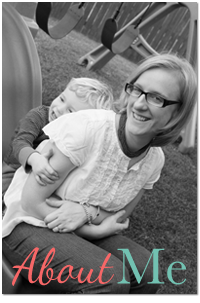All of us have had questions or doubts about different areas of our faith. Some may question creation and how it could have all been done in 7 days, whether the earth was really flooded, or if the events in the Book of Revelation will really come to pass. In today’s culture where the fact that there is even an absolute truth is questioned at every turn, people often doubt that the Bible is actually the Word of God and the standard of truth.
As with most doctrines, there is really no limit to how far you want to dig and how much you want to know. To attack this doctrine, I decided to look at questions that I have always been curious about. As I said yesterday, this isn’t meant to be a place where I cover every aspect of these doctrines. There are books with hundreds and thousands of pages that do that! I will make sure I include the references I have used and will do a post with complete information so you can dig deeper.
Question #1:
How was it determined what books would be in the Bible?
Biblical scholars refer to the Bible as the canon of sacred Scripture. The word canon comes from the Greek word “norm,” “standard,” or “measuring rod.” Since the formation of the church, the Bible has been used as the standard or authority.
Old Testament
The books that are included in the Old Testament are characterized by Biblical historians as the “Jewish Scriptures.” These books are often referred to as the Law, the Prophets, and the Writings or Psalms. We can go back to the explanation of “canon” to understand why they included what they did. The Council of Laodicea in ad 363 stated: “No psalms of private authorship can be read in the churches, nor uncanonical books, but only the canonical books of the Old and New Testaments.”
The Jewish canon had 24 books: beginning with Genesis and ending with 2 Chronicles. What we use today as the Old Testament is in line with the Greek translation called the Septuagint beginning with Genesis and ending with Malachi.
Torah: Genesis, Exodus, Leviticus, Numbers, Deuteronomy
Prophets: Joshua, Judges, Samuel (1/2), Kings (1/2), Isaiah, Jeremiah, Ezekiel,
The Minor Prophets ( Hosea, Joel, Amos, Obadiah, Jonah, Micah, Nahum, Habakkuk, Zephaniah, Haggai, Zechariah, Malachi)
Writings: Psalms, Job, Proverbs, Ruth, Song of Solomon, Ecclesiastes, Lamentations, Esther, Daniel, Ezra-Nehemiah, Chronicles (1/2)
In the New Testament Jesus speaks of this composition of books, “This is what I have told you while I was still with you: Everything must be fufilled that is written about me in the Law of Moses, the Prophets, and the Psalms.” Luke 24:44
Roman Catholics and Protestants fully agree on what books are in included in the New Testament, but they differ on the books to be included in the Old Testament. The Roman Catholic Bible includes the Apocrypha. These books were written after the Old Testament was completed and before the New Testament was begun.
According to Roger Nicole, the New Testament quotes various parts of the Old Testament as divinely authoritative over 295 times, but not once do they cite any statement from the books of the Apocrypha or any other writings as having divine authority. (“New Testament Use of the Old Testament” in Revelation and the Bible, ed. Carl Henry [London: Tyndale Press, 1959], pp. 137-141)
New Testament
In order for a book to be included in the New Testament, the book had to meet certain criteria: to be authored by one of the apostles, to be considered as authoritative within the early church, and be in line or harmony with the books that were already included in the Canon. The New Testament contains: five books of narrative (Matthew, Mark, Luke, John, Acts), 21 Letters, and a book of visions (Revelation).
A lot of those who doubt the authority of Scripture may say that humans decided what books were to be included, but that is not the case. To determine what books were included in the New Testament the early church leaders ensured that the books met the criteria mentioned above. R.C. Sproul explains it this way, “the church did not create the Canon but merely recognized the books the bore the marks of canonicity and were therefore authoritative with the church.” (Essential Truths of the Christian Faith p.23)
Wow...that is a lot of historical info, but it is important for us to know a little of how we got to where we are. Later this week, I will include links to information on where you can learn MUCH more.






No comments:
Post a Comment